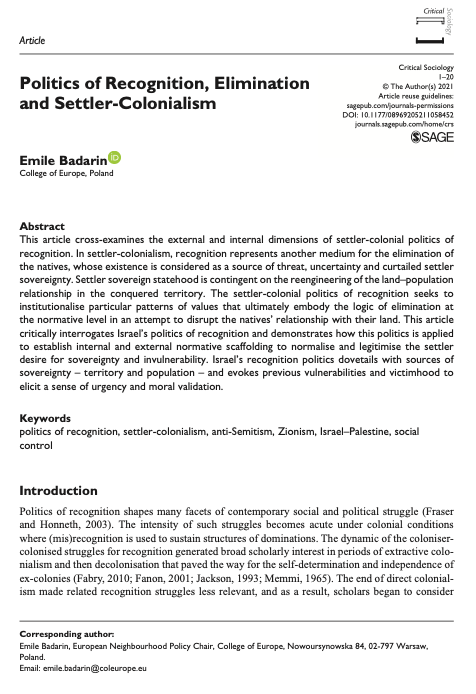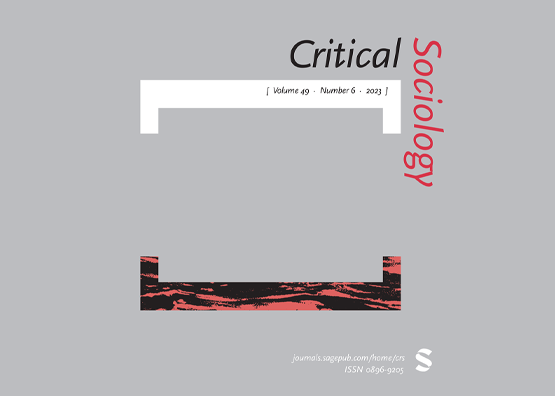This article cross-examines the external and internal dimensions of settler-colonial politics of recognition. In settler-colonialism, recognition represents another medium for the elimination of the natives, whose existence is considered as a source of threat, uncertainty and curtailed settler sovereignty. Settler sovereign statehood is contingent on the reengineering of the land–population relationship in the conquered territory.
The settler-colonial politics of recognition seeks to institutionalise particular patterns of values that ultimately embody the logic of elimination at the normative level in an attempt to disrupt the natives’ relationship with their land. This article critically interrogates Israel’s politics of recognition and demonstrates how this politics is applied to establish internal and external normative scaffolding to normalise and legitimise the settler desire for sovereignty and invulnerability. Israel’s recognition politics dovetails with sources of sovereignty – territory and population – and evokes previous vulnerabilities and victimhood to elicit a sense of urgency and moral validation.
Cite as: Badarin, Emile 2023. “Politics of recognition, elimination and settler-colonialism.” Critical Sociology 49.2: 233-252.

